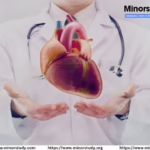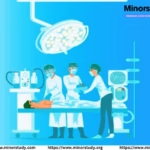Doctor of Medicine (MD): Overview and Details
The Doctor of Medicine (MD) is a postgraduate medical degree that prepares medical professionals to become experts in diagnosing and treating a wide range of diseases and conditions. The program focuses on advanced medical knowledge, clinical skills, and patient care, forming the foundation for those aiming to specialize in various medical fields.
Key Features of MD Program
Duration: Typically 3 years for postgraduate MD programs (varies by country).
Eligibility: Requires an MBBS (Bachelor of Medicine, Bachelor of Surgery) degree and clearing an entrance exam for postgraduate medical education.
Goal: To advance a doctor’s expertise in specific areas of medicine and train them for leadership roles in healthcare settings.
Mode: Includes clinical rotations, theoretical coursework, practical training, and research work.
Core Subjects in MD
Specialization | Description |
General Medicine | Focuses on diagnosing and treating adult diseases, including chronic conditions. |
Pediatrics | Specialization in the care of infants, children, and adolescents. |
Obstetrics & Gynecology | Deals with female reproductive health, pregnancy, and childbirth. |
Orthopedics | Focuses on diseases and injuries of the musculoskeletal system. |
Cardiology | Specializes in diagnosing and treating heart diseases and related conditions. |
Neurology | Deals with diseases of the nervous system, including the brain and spinal cord. |
Dermatology | Specializes in the diagnosis and treatment of skin disorders. |
Psychiatry | Focuses on diagnosing and treating mental health conditions. |
Anesthesia | Specializes in anesthesia techniques during surgeries and medical procedures. |
Radiology | Involves using imaging techniques like X-rays, MRI, CT scans for diagnosis. |
Program Structure
Year | Focus Area |
Year 1 | Advanced anatomy, physiology, pathology, pharmacology, and medical ethics. Clinical case studies begin. |
Year 2 | Focus on clinical skills, patient management, medical specialties, and diagnostic techniques. |
Year 3 | Specialized rotations in departments such as pediatrics, cardiology, neurology, and surgery. |
Final Year | In-depth work in chosen specialization, along with preparation for residency or research opportunities. |
Skills Developed During MD
Clinical Expertise: In-depth knowledge of diagnosis, treatment, and management of diseases.
Advanced Medical Techniques: Mastery in medical procedures, diagnostic tools, and patient care techniques.
Research Skills: Conducting clinical research and contributing to medical innovations.
Patient Communication: Enhancing skills to interact with patients and their families effectively.
Leadership and Management: Leading medical teams, managing healthcare facilities, and making informed decisions.
Assessment in MD Program
Type | Description |
Written Exams | Theoretical knowledge in areas like pharmacology, pathology, and internal medicine. |
Clinical Examinations | Practical evaluation of patient interactions, diagnosis, and medical procedures. |
Viva Voce | Oral examination on medical cases and clinical decision-making. |
Research Thesis | Submission and defense of an original research dissertation. |
Rotational Exams | Assessment based on performance during clinical rotations. |
Career Opportunities After MD
Field | Role |
Physician | Treat patients, diagnose diseases, and manage long-term care in hospitals or clinics. |
Specialist | Work as a specialist in cardiology, dermatology, or other medical fields. |
Academician | Teach and train medical students, lead research projects, and publish in medical journals. |
Researcher | Conduct clinical or laboratory research, contribute to scientific advancements. |
Healthcare Administrator | Lead healthcare organizations, design healthcare policies, and manage medical staff. |
Global Significance of MD
The Doctor of Medicine (MD) degree is highly regarded across the globe as it signifies a deep understanding of medicine and patient care. MD graduates play an essential role in addressing healthcare needs, improving medical treatments, and contributing to scientific breakthroughs in the medical field.
Challenges During MD
Intense Study Load: The curriculum is rigorous, with long hours dedicated to lectures, clinical work, and exams.
High Emotional Stress: The medical profession requires emotional resilience while dealing with critical patient conditions.
Financial Costs: Medical education, including the MD, can be financially demanding due to tuition fees and living expenses.
Motivational Quote
“The best way to find yourself is to lose yourself in the service of others.”– Mahatma Gandhi
Conclusion
The Doctor of Medicine (MD) program is a prestigious and demanding path that prepares individuals to become skilled healthcare professionals, capable of diagnosing, treating, and improving the lives of patients worldwide. With significant clinical exposure, practical experience, and specialized knowledge, MD graduates are positioned to lead in various medical domains and contribute significantly to the healthcare system.








